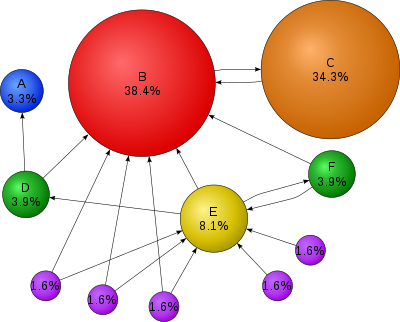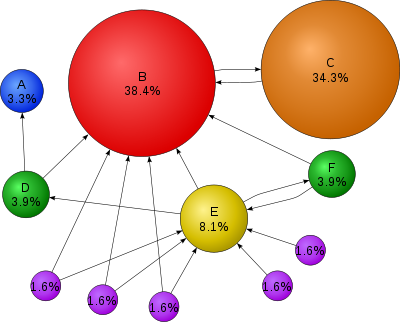PageRank is a commonly used Google tool which basically helps you understand the importance of a webpage from Google’s point of view. Technically, the tool refers to a link analysis algorithm applied by the Google search engine which sets a mathematical weightage to all hyperlinked elements to measure the relative importance of a particular web page.

In simpler terms, Google regards links as votes out of which, some votes could be more important than others. So what PageRank does for Google is that is adds up the link votes to ascertain which pages are most important and which are of lesser significance to a search result. Therefore the ranking of a webpage in a Google search depends upon these link vote scores, along with various other factors.
PageRank holds a lot of value to SEOs as it signifies the importance of a webpage, but only as per Google’s opinion. As a Search Engine Optimizer, it is important for you to realise that while you are using the toolbar to locate “good” sites from which you should try to get maximum links, you should also know the fact that link context is also imperative apart from many other features that Google looks for to rank a webpage.
Somehow, in the race to get higher Google ranking for the webpage, the initial and basic reason of linking with good sites has been completely forgotten just in order to please the Google ranking algorithms!! So, instead of bothering about “good” links and “bad” links according to Google, you should be paying attention to the relevance and context of the links.
Matt Cutts says, “I highly recommend keyword analysis, looking at server logs to figure out new content to add, thinking of new hooks to make your site attract more word-of-mouth buzz, pondering how to improve conversion once visitors land on your site, etc.”
“By the time you see newer PageRanks in the toolbar, those values have already been incorporated in how we (Google) score/rank our search results. So while you may be happy to see that the Google Toolbar shows a little more PageRank for a given page, it’s not as if that causes a change in search results at that point.”
So, going by what Matt Cutts opines, it is better as an SEO to pay attention to the overall performance of your website. He says, “If you don’t care about PageRank and your site is doing well, that’s fine by me.“


no comment